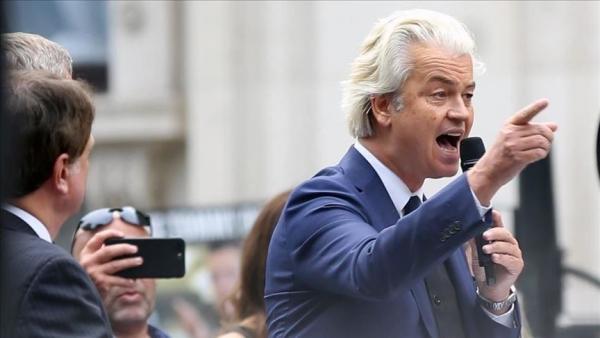
The far-right, anti-Islam Party for Freedom (PVV) won 37 seats in the Dutch legislative elections, after almost all the votes were counted, which constituted a “shock to Europe,” given its positions in favor of leaving the European Union and its promises to impose major restrictions on asylum and immigration.
Nationalist and far-right leaders across Europe praised the victory of the party that spent 25 years in parliament, and far outperformed the Left Alliance, its closest competitor, but it still must convince other parties to join it to form a coalition government, according to the “Deutsche Welle” website.
Party leader Geert Wilders, 60, said he was ready to compromise with other parties to become prime minister of the Netherlands.
As for the centre-right party, the party of resigned Prime Minister Mark Rutte, it won 23 seats according to the same poll. Dilan Yesilguz, 46, ran on the party’s list, hoping to become the first woman to head the government.
Yesilgüz, a Turkish Kurd born in Ankara in 1977, arrived in the Netherlands at the age of eight with her father as an asylum seeker, but now supports limiting immigration. It came as a surprise when she declared her openness to the possibility of forming a coalition with Wilders’ far-right party.
The Party for Freedom (PVV) was founded in 2004 and focused on anti-Islamic policies, and Wilders said his disdain for Islam was fuelled by the assassination of the radical anti-Islam film-maker Theo van Gogh in 2004 and his time spent in Israel on a kibbutz. According to the Guardian website.
Wilders has previously promised to impose major restrictions on asylum and immigration, to completely stop accepting asylum seekers and to return migrants at the border, to reduce Dutch payments to the European Union, and to vote against entry of any new members, including Ukraine, as well as his support for holding a referendum on the Netherlands’ exit from the European Union.
Wilders recently sought to improve his image by modifying some of his positions. He emphasized in particular that there are more pressing problems than reducing the number of asylum seekers, and toned down some of his anti-Islamic positions.
Wilders’ opponents attacked his anti-Islamic stances during his last debate before the elections on NOS public television, but he responded by stressing that he would be prime minister for “all Dutch people.”
The government coalition in the Netherlands, led by Prime Minister Mark Rutte, collapsed on July 7, after only a year and a half in power, following disagreements over the necessary measures to limit the flow of migrants, according to media outlets.





